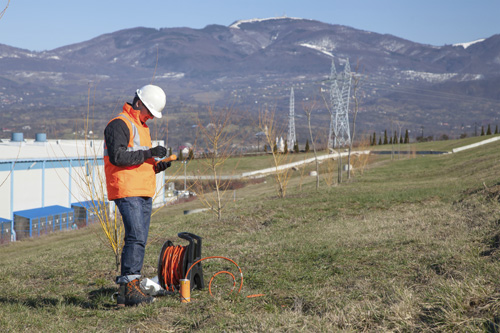Conax designed a PTFE sleeve within a thermocouple sheath to create a rugged sensor that would maintain its watertight integrity and electrical isolation within test wells.
Industry: Bioremediation
Application: Groundwater/Soil Creosote Recovery
Customer Requirement: The U.S. Army Corps of Engineers conducted a pilot study to test the effectiveness of insitu steam treatment of soil and groundwater contaminated by creosote. Test wells equipped with Type E thermocouples were drilled, with the thermocouples buried directly in the soil at 20, 30, 40, 50, and 60-foot depths. The direct burial required a rugged sensor that would maintain its watertight integrity under these unusual circumstances. If a probe fails, removal/replacement is not possible. A new well would need to be drilled to install a replacement probe. Therefore, probe life is critical.
Conax Design Solution: A special design used a PTFE sleeve within the thermocouple sheath to provide added moisture protection as well as electrical isolation from the stainless steel overbraid. Due to the federal government’s involvement, the probe purchase needed to go out to bid. Conax developed a specification for the Corps to use and was subsequently successful in securing an initial order for 651 probe assemblies. This same design may also be implemented at Superfund sites across the nation.

